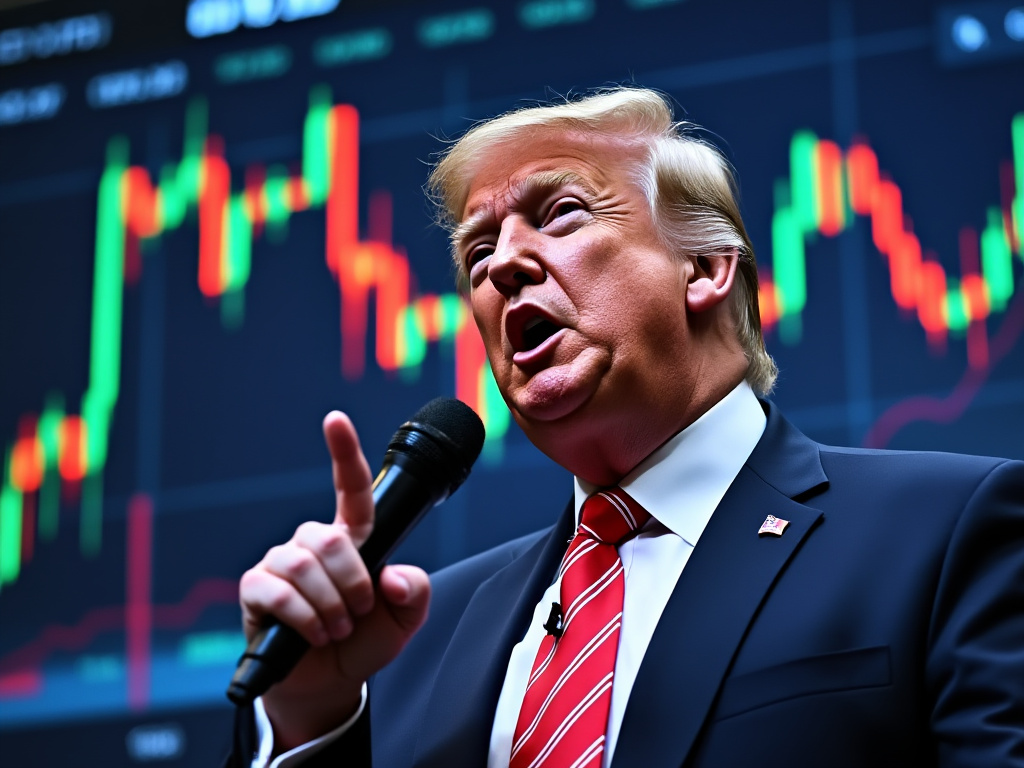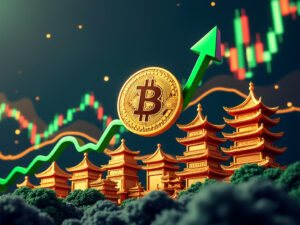
In a move that’s sending shockwaves through both the political and financial worlds, World Liberty Financial – the nascent decentralized finance (DeFi) protocol backed by Donald Trump and his family – has announced plans to launch its public token sale on October 15th, just three weeks before the 2024 presidential election. This bold step into the crypto arena by the Republican candidate has left pundits, investors, and voters alike scrambling to understand the implications of this unprecedented fusion of politics and blockchain technology.
The WLFI token, named after World Liberty Financial, is set to be more than just another cryptocurrency. It’s being billed as a governance token, potentially giving holders a say in the protocol’s future development. But with the Trump family’s heavy involvement – Donald Trump as “Chief Crypto Advocate,” sons Eric and Donald Jr. as “Web3 Ambassadors,” and even young Barron as “DeFi Visionary” – questions are swirling about the true nature and purpose of this digital asset.
The timing of the token sale, so close to the election, has raised eyebrows and sparked intense debate. Is this a genuine attempt to revolutionize finance, or a clever campaign strategy designed to appeal to tech-savvy voters and potential donors? The project’s ambitious goal of raising $300 million at a $1.5 billion valuation suggests that World Liberty Financial is aiming for more than just symbolic support.
Adding to the intrigue is the project’s leadership. Spearheaded by Zachary Folkman and Chase Herro, both formerly of Dough Finance, World Liberty Financial comes with a history that’s both promising and concerning. Dough Finance’s previous brush with a $2 million crypto asset drain in July has left some investors wary, while others see it as valuable experience in navigating the treacherous waters of DeFi.
The cryptocurrency community is buzzing with speculation about the potential impact of WLFI on the broader market. Some see it as a potential catalyst for a new bull run, with Trump’s name recognition and devoted follower base potentially bringing a flood of new investors into the crypto space. Others worry about the regulatory implications, wondering how government agencies will respond to a former (and potentially future) president so directly involved in a cryptocurrency project.
On the political front, the move has been met with mixed reactions. Supporters praise Trump’s embrace of cutting-edge technology as forward-thinking, while critics decry it as a desperate attempt to appeal to younger voters or, worse, a potential vehicle for campaign finance violations. The Democratic Party has yet to issue an official response, but behind-the-scenes discussions about how to counter this unexpected development are undoubtedly intense.
Interestingly, blockchain-based prediction markets like Polymarket are already factoring this development into their forecasts. As of now, these markets see Donald Trump as the frontrunner in the upcoming election. Whether this is due to the WLFI announcement or other factors remains a topic of heated debate among political analysts.
The technical aspects of World Liberty Financial are equally fascinating. The project has proposed launching on Aave’s v3 platform on the Ethereum mainnet, potentially providing liquidity for a range of digital assets including ether (ETH), wrapped bitcoin (wBTC), and various stablecoins. This move could position WLFI as more than just a meme coin, giving it real utility within the DeFi ecosystem.
However, questions remain about the long-term viability and legality of such a closely politician-affiliated cryptocurrency. Regulatory bodies like the SEC have been increasingly scrutinizing the crypto space, and a project with such high-profile backing is likely to attract intense attention. The potential for conflicts of interest, especially if Trump wins the election, is a concern that many legal experts are already voicing.
As the October 15th launch date approaches, the crypto and political worlds are holding their breath. Will WLFI be a game-changer for both finance and politics, ushering in a new era of blockchain-based governance? Or will it prove to be a fleeting phenomenon, remembered as little more than a quirky footnote in the annals of election history?
One thing is certain: the launch of WLFI is set to be one of the most watched events in both the crypto and political calendars. With the potential to influence not just market prices but possibly the outcome of a presidential election, the stakes couldn’t be higher.
As America stands at this unprecedented intersection of politics, technology, and finance, the world watches with bated breath. Will the land of the free become the home of the blockchain? Only time – and the American voters – will tell. But one thing’s for sure: the 2024 election just got a whole lot more interesting, and potentially, a whole lot more volatile.




